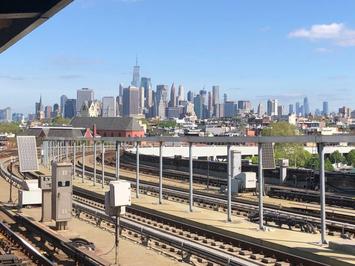
My latest article is now online in City Journal, and is about the need for New York to start thinking like a growth city again. It’s interesting to contrast NYC with the case of Atlanta I recently wrote about. Atlanta has seen decelerating growth indicating it may be nearing maturity. New York long ago transitioned to maturity. But then the city started to experience growth once again, entering, if not its historic boom era growth, at least a much higher demand phase. But it has been unable to respond to the problem. In part I argue that comes because it forgot what it means to think like a growth city over the many decades it existed as a mature city.
For most of its history, New York was one of America’s great boomtowns, growing at a rate comparable with metro Dallas or Houston today. From America’s first census until 1930, the city’s population expanded by double-digit percentages every decade—and by more than 20 percent in every decade but one. Then, with the Great Depression and World War II, growth slowed, followed by stagnation and then by decline and abandonment, particularly in the 1970s. The greater metro region continued to grow for longer but then it, too, flatlined.
When the boom days ended, New York forgot how to grow. It took on a mindset of stasis and stagnation, adopting a zoning code in 1961 that put a de facto population cap on the city. In the half century since Robert Moses was dethroned as the region’s master builder, the city has built little infrastructure. What incremental expansions have occurred required herculean effort and obscenely high expenditures. Housing has expanded slowly.
These restrictions weren’t a problem when the city began a moderate rebound in the 1980s because there was plenty of slack to take up—land and buildings ready for redevelopment and room on the subways for more riders. A generation later, though, the city has reached the limits of incremental development.
Click through to read the whole thing.
This piece originally appeared on Urbanophile.
Aaron M. Renn is a senior fellow at the Manhattan Institute, a contributing editor of City Journal, and an economic development columnist for Governing magazine. He focuses on ways to help America’s cities thrive in an ever more complex, competitive, globalized, and diverse twenty-first century. During Renn’s 15-year career in management and technology consulting, he was a partner at Accenture and held several technology strategy roles and directed multimillion-dollar global technology implementations. He has contributed to The Guardian, Forbes.com, and numerous other publications. Renn holds a B.S. from Indiana University, where he coauthored an early social-networking platform in 1991.












